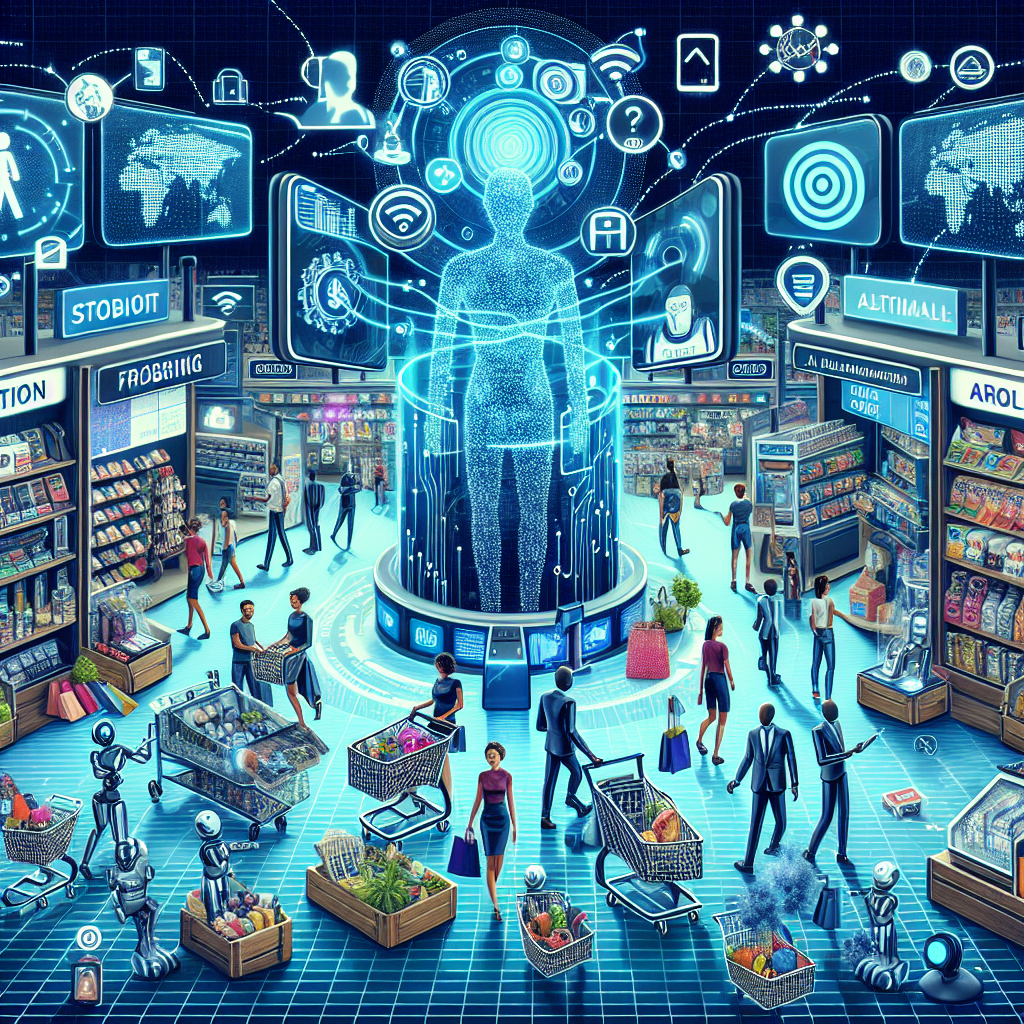The Risks of AI in Retail: Impact on Consumer Behavior and Shopping Habits
Artificial Intelligence (AI) has become a common tool in the retail industry, helping businesses streamline operations, personalize customer experiences, and improve overall efficiency. However, while AI has many benefits, it also comes with risks that can impact consumer behavior and shopping habits. In this article, we will explore some of the potential risks of AI in retail and how they can affect the way consumers shop.
1. Data Privacy and Security Concerns:
One of the biggest risks of AI in retail is the potential for data privacy and security breaches. AI systems collect and analyze vast amounts of customer data, including personal information, purchase history, and browsing behavior. If this data falls into the wrong hands, it can lead to identity theft, fraud, and other security risks.
Consumers are increasingly concerned about the privacy of their data, especially in light of high-profile data breaches in recent years. As a result, retailers must take steps to ensure that their AI systems are secure and compliant with data protection regulations such as the General Data Protection Regulation (GDPR).
2. Bias and Discrimination:
AI systems are only as good as the data they are trained on, and if this data is biased or incomplete, it can lead to discriminatory outcomes. For example, AI algorithms used to recommend products to customers may inadvertently favor certain demographics or exclude others based on factors such as race, gender, or income.
This can have a negative impact on consumer behavior, as customers may feel marginalized or excluded by AI-powered systems. To mitigate this risk, retailers must carefully monitor and audit their AI systems to ensure they are fair and unbiased.
3. Loss of Human Interaction:
AI in retail has the potential to streamline processes and improve efficiency, but it can also lead to a loss of human interaction. As more tasks are automated by AI, such as customer service and product recommendations, the personal touch that sets brick-and-mortar stores apart from online retailers may be lost.
This can impact consumer behavior, as shoppers may feel less connected to the brands they buy from and less satisfied with their overall shopping experience. To counteract this risk, retailers must strike a balance between AI-powered automation and human interaction to create a seamless and personalized shopping experience.
4. Over-reliance on AI:
Another risk of AI in retail is the potential for over-reliance on technology. As AI systems become more sophisticated and capable, there is a temptation for retailers to rely too heavily on them for decision-making and customer interactions.
This can lead to a lack of human oversight and control, as well as a disconnect between the data-driven insights provided by AI and the real-world needs and preferences of consumers. To avoid this risk, retailers must ensure that AI is used as a tool to enhance human decision-making, rather than replace it entirely.
5. Impact on Shopping Habits:
Overall, the risks of AI in retail can have a significant impact on consumer behavior and shopping habits. If consumers feel their data is not secure, or that AI systems are biased or impersonal, they may be less likely to shop with a particular retailer or engage with AI-powered services.
To address these risks, retailers must prioritize transparency, security, and fairness in their use of AI technology. By building trust with consumers and ensuring that AI systems are designed with ethical considerations in mind, retailers can mitigate the potential negative impacts of AI on consumer behavior and shopping habits.
FAQs
Q: How can retailers ensure that their AI systems are secure and compliant with data protection regulations?
A: Retailers can ensure the security of their AI systems by implementing robust data encryption, access controls, and monitoring mechanisms. They should also conduct regular security audits and compliance assessments to identify and address any potential vulnerabilities.
Q: How can retailers prevent bias and discrimination in their AI systems?
A: Retailers can prevent bias and discrimination in their AI systems by carefully selecting and monitoring the data used to train them. They should also implement bias detection and mitigation techniques, such as algorithmic audits and fairness testing, to ensure that their AI systems are fair and unbiased.
Q: How can retailers strike a balance between AI-powered automation and human interaction?
A: Retailers can strike a balance between AI-powered automation and human interaction by designing AI systems that complement, rather than replace, human decision-making and customer interactions. They should also provide training and support for employees to ensure they are equipped to work alongside AI technology.
Q: How can retailers build trust with consumers in their use of AI technology?
A: Retailers can build trust with consumers by being transparent about how their AI systems work, what data they collect, and how it is used. They should also provide clear opt-in and opt-out mechanisms for consumers to control their data and preferences, as well as robust data security and privacy protections.
In conclusion, the risks of AI in retail can have a significant impact on consumer behavior and shopping habits. By addressing concerns such as data privacy, bias, and loss of human interaction, retailers can mitigate these risks and build trust with consumers in their use of AI technology. By carefully balancing the benefits and risks of AI, retailers can create a seamless and personalized shopping experience that meets the needs and preferences of today’s consumers.

